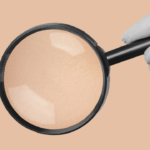
BEATING
THE BLUES:
Don’t Suffer,
Supplement!
Signs of
Depression
- Persistent sad, anxious, or “empty” mood
- Loss of interest or pleasure in activities, including sex
- Restlessness, irritability, or excessive crying
- Feelings of guilt, worthlessness, helplessness, hopelessness, and pessimism
- Sleeping too much or too little, early-morning waking
Source WebMD
Modern life has its ups and downs and will always be filled with joy and sadness. It’s natural to experience these highs and lows, but if you’re consistently feeling sad or have lost interest in the things you love this may be an indication that there is an underlying imbalance that needs to be addressed. Depression involves the body, mood, and thoughts, and it affects the way you eat and sleep, the way you feel about yourself, and the way you view life.
Depression affects women more than it does men. Indeed, women in North America are nearly twice as likely as men to be diagnosed with depression. In the United States alone, approximately 12 million women experience clinical depression each year. It occurs most frequently between the ages of 25 and 44.
We call it “the blues” sometimes, but depression is actually a set of symptoms that go well beyond low mood. It expresses itself in fatigue, irritability, sleep disturbances, and weight gain. Perhaps worst of all, it diminishes the everyday joy of living. It’s normal to go through short periods of mild depression, especially if their root causes are the losses and frustrations of life. But when the down periods last for weeks or months at a time, when they seem increasingly unrelated to things that happen to you, and when you find yourself reluctant to participate in activities you used to enjoy… well, then there is probably an underlying internal imbalance of some sort that needs your attention.
Some of the factors that
contribute to depression include:
- Hormonal imbalances. These can be caused by menstrual- cycle changes, pregnancy, low thyroid, miscarriage, postpartum, perimenopause, and menopause.
- Stressors affecting adrenal function. Emotional life events – such as trauma, loss of a loved one, work stresses, being in a bad relationship (or grieving the end of a good one), or caring for children or aging parents – any of these can overwhelm the body’s ability to cope with normal stress.
- Medical illness. Dealing with serious medical illnesses such as stroke, heart attack, or cancer are undeniably stressful and can easily disrupt mood.
- Environmental toxins. Heavy metals (lead, mercury, cadmium, arsenic, nickel, and aluminum) as well as pesticides, formaldehydes, and benzenes have been associated with depression. These compounds show an affinity for nerve tissues, where they can be particularly damaging.
Depression in women is
most common between the
ages of 25 and 44
Now, you may note that hormones are right at the top of the list when it comes to causing depression. Combining this with the fact that women are disproportionately diagnosed with clinical depression, you may be inclined to assume that being an aging female is an automatic risk factor for “getting the blues.” You wouldn’t be alone in that assumption, as more than one-half of women surveyed believe that depression is “a normal part of aging.”*
But you would be wrong! Depression is not now, and need not ever be, a normal part of aging. You might also think that it’s normal for women to feel depressed during menopause, and that treatment is not necessary.* You’d have the company of about half of the female population in that belief, according to studies, but again, you’d be wrong.
Let’s look at what the research really tells us. We can start by noticing what I stated above – that depression in women is most common between the ages of 25 and 44. That’s not the menopausal age group. It’s more common for a woman to be perimenopausal in her forties, beginning the transition. The Massachusetts Women’s Health Study observed that the rate of depression begins to decrease as women move from peri- to postmenopause. Indeed, the rate of depression is lowest for women who have been postmenopausal for at least 27 months. These results show that depression is moderately associated with perimenopause, the long run-up to a cessation of menstrual periods. Still, it’s good news to note that any depression experienced is likely to be brief and decline through “the change” and beyond.
Depression is not now, and need not ever be, a normal part of aging.
Obviously, then, the time to fight the blues is well before menopause. But why is this so? It’s because the significant fluctuation in a woman’s hormone levels during perimenopause wreaks all sorts of havoc when combined with the normal stress response in our bodies. Our adrenal glands, already charged with protecting us from everyday traffic, spilled coffee and irritable bosses, easily becomes overburdened just when we need them most. We rely on our adrenal glands, you’ll recall, to become our main hormone producers when the ovaries shut down for good. Ideally, we reach that point called menopause with adrenals that are healthy and ready to take over! If not, there can be trouble.
The symptoms associated with adrenal fatigue during perimenopause are what we commonly call PMS, premenstrual syndrome. It’s a catch-all term that encompasses some 150 different symptoms, but it is most associated with anxiety, tension, irritability/anger, headaches and, yes, depression.
As many as
%
of women will have to deal with PMS at some time during their reproductive years,
while approximately
%
of women will have symptoms that are distressing enough to interfere with their everyday lives.
Leaky
Gut?
Emerging information suggests that “leaky gut syndrome” is a strong contributor to diseases such as diabetes, obesity, gastrointestinal disorders, and mood disorders like depression. Over a long period of time, gut-induced inflammatory responses in the stomach wall significantly compromise both the structure and the repair mechanisms of the digestive tract. When these structures break down, the intestinal wall becomes more permeable to toxins or microbes that would otherwise not cross into the bloodstream. To further suggest the connection, evidence shows that bowel disorders are often correlated with poor mood. In fact, almost one-third of patients with irritable bowel syndrome (IBS) have been found to have anxiety or depression. While a healthy microbiome appears to promote a positive mood, an unhealthy one brings on the doldrums.
It is highly probable that the difference between those who suffer and those who don’t is a balancing act involving stress and how it interacts with hormones, nutrients, liver health, and happiness-inducing neurotransmitters such as serotonin. This is the recipe that influences whether or not women can adapt to “the change of life” without jeopardizing their emotional health.

Let’s talk about the factors that affect this all-important balance, the ones you can control!
Diet and lifestyle considerations for fighting depression
- Alcohol As you probably know, alcohol is a brain depressant that increases adrenal hormone output, increasing the likelihood of adrenal fatigue. It interferes with many brain cell processes and disrupts the normal sleep cycle.
- Exercise Regular exercise may be the most powerful natural antidepressant available! Various clinical studies have indicated that exercise has profound antidepressant effects by increasing endorphin secretion (Sports Medicine, 1994) (The New England Journal of Medicine, 1981).
- Thyroid Interestingly enough, mild depression is often a first or early manifestation of low thyroid issues, and even subtle decreases in thyroid hormone production are suspected to produce symptoms that impact your mood.
- Adrenal Health The primary area of the brain that deals with stress is the limbic system. Because of its enormous influence on emotions and memory, the limbic system is often called the “emotional brain.” Disturbances in the serotonin system and the limbic hypothalamicpituitary- adrenal axis (say that three times fast!) are most consistently associated with mood-related illness.
- Sugar A recent cross-cultural study published in the British Journal of Psychiatry showed a solid link between refined sugar consumption and mental illness. Sugar suppresses the activity of a key growth hormone in the brain called brain-derived neurotrophic factor (BDNF), which plays a vital role in memory, learning, and mood disorders.
Some Key Supplements
to stave off or diminish mild depression
Vitamin B6
B6 levels are typically low in depression, especially in women taking birth control or on hormone replacement therapy for menopausal symptoms. Vitamin B6 is absolutely essential in the manufacture of dopamine and serotonin, and it is likely that many individuals with depression may be, at least in part, suffering from a deficiency of this key vitamin.
AdrenaSense®
As we have seen, supporting and treating the adrenal glands can be an important strategy for preventing or treating mood disorders. Herbs such as rhodiola, Siberian ginseng, and ashwagandha are powerful adaptogens that help balance damaging stress hormones such as cortisol.
Vitamin D
New research shows that low serum levels of vitamin D are associated with clinically significant symptoms of depression in otherwise healthy individuals (Psychiatry Research, 2015).
EstroSense®
The liver plays a key role in the body’s detoxification process, so supporting the liver is the foundation for treating many hormonal imbalances. If the liver function is compromised, then estrogen metabolism is compromised, leading to excess estrogen levels and what is often described as estrogen dominance. Estrogen dominance may contribute to PMS as well as perimenopausal symptoms, also increasing the likelihood of mood disturbances and depression.
5-Hydroxytryptophan
(5-HTP)
5-HTP is the precursor to serotonin. Numerous studies have shown that 5-HTP is as effective as SSRIs and tricyclic antidepressants, it is better tolerated, and it is associated with fewer and much milder side effects (Psychopathology, 1991).
Probiotics
Remember that a healthy microbiome promotes a healthy mood, just as it supports many of the body’s key functions and activities. Support the gut with Natural Factors Ultimate Probiotic. This exceptional probiotic provides proprietary strains with 12 billion active cells that work synergistically, guaranteeing maximum activity and efficacy.
What I’ve offered you here is a map you can use to find your way up and out of your blues. Don’t assume your symptoms can’t be alleviated, because they can! The strategy for putting an end to that no-fun thrill ride you’ve been on is to address any nutritional insufficiencies and hormonal malfunctions that are quite literally keeping you stuck in a blue mood. Mild depression can affect every waking moment of your life. Don’t accept it. Take the steps above that I know will bring you back to loving your life again!
*National Mental Health Association












